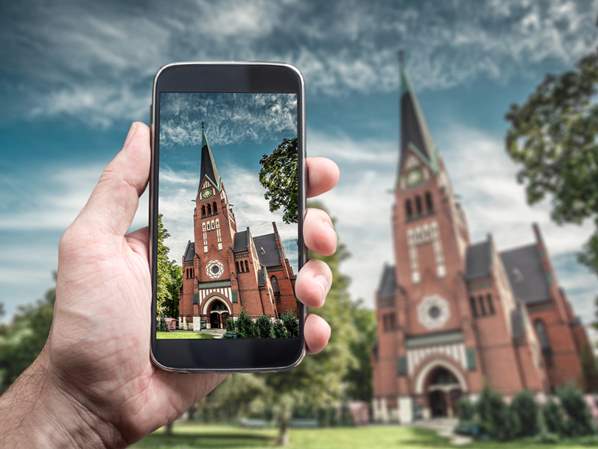
As the digital landscape evolves, church communities also adapt to technological advancements. In 2025, church apps will offer enhanced features designed to foster spiritual growth, community engagement, and seamless communication. This post explores the anticipated features and benefits of church apps, providing insights into how these digital tools can enrich congregational experiences.
Increasing Participation Within the Community
An app for church in 2025 should focus on enhancing relationships among members by introducing functions such as online meeting spaces and forums for discussions to encourage people to have conversations no matter where they are located physically. These tools will promote the development of a community by offering a platform for sharing prayer intentions, coordinating activities, and providing assistance to one another during times of need.
Engaging Worship Encounters
In the year 2025, the experience of worship is poised to advance with the introduction of church applications. With live-streamed services incorporating components like polls and Q&A sessions, worship is becoming more captivating. Contributors have the opportunity to engage actively and enhance their journey from their homes. Moreover, virtual reality functionalities could provide an engaging worship experience, introducing a fresh perspective to religious gatherings.
Nurturing Individual Spiritual Development
Church applications aim to support each person’s path by providing customized materials and resources tailored to their preferences and spiritual requirements. Users will receive personalized devotionals, sermons, and study schedules. Guidance on reading materials and podcasts aims to motivate development goals. Tracking features enable individuals to monitor progress toward their objectives.
Efficient Communication
Communication plays a role in fostering a sense of community within a church setting. Upcoming apps are designed to make sharing information, such as event schedules and announcements, more efficient by sending personalized alerts and push notifications. Members can easily stay updated on details like service times and volunteer opportunities to stay engaged with their church’s happenings.
Effective Coordination of Volunteers
Coordinating volunteers can pose challenges; however, in 2025, church applications are set to streamline this task. This will include functions such as setting volunteer schedules, assigning roles, and swapping shifts to improve the organization’s effectiveness. Church leaders will be able to manage their teams, making sure volunteers are well-prepared and informed to serve their community.
Raising Funds Effortlessly
In the church apps, updating donations will be easier, making it simple for parish members to contribute regularly with secure transactions and recurring options available. Trust in the process will grow as users can track fundraising goals and witness the effect of their generosity on church projects, encouraging ongoing support for various initiatives.
Improved Confidentiality
In today’s world, security and privacy are priorities. Church applications will include security features to safeguard data. Biometric verification and secure communication channels will guarantee that user information is kept private. Members can connect with their church community online with the assurance that their privacy is protected.
Incorporating Smart Gadgets
Church applications integrated with smart devices will improve user interactions by allowing hands-on access to app features using voice-controlled assistants and wearable tech gadgets, like smartwatches, that can provide reminders for upcoming events or enable users to listen to sermons while exercising.
Advocating for Multicultural Churches
As churches embrace diversity among their members, languages, and cultures over time, it will become crucial for church apps to provide language support capabilities. In the coming years, these apps are expected to feature interfaces that cater to languages, allowing individuals to use the app in their language of choice with ease. This focus on inclusivity aims to create an environment that fosters unity and belonging within the congregation.
In Summary
By the year 2025, mobile applications designed for churches will be tools for building a sense of community-enhancing worship experiences and aiding in development. These advanced features will encourage interaction among members, simplify communication processes, and uphold security measures, thereby solidifying the importance of these apps within church groups. With advancements, church apps are set to play a vital part in uniting people, fostering religious beliefs, and creating lively and inclusive congregations.




